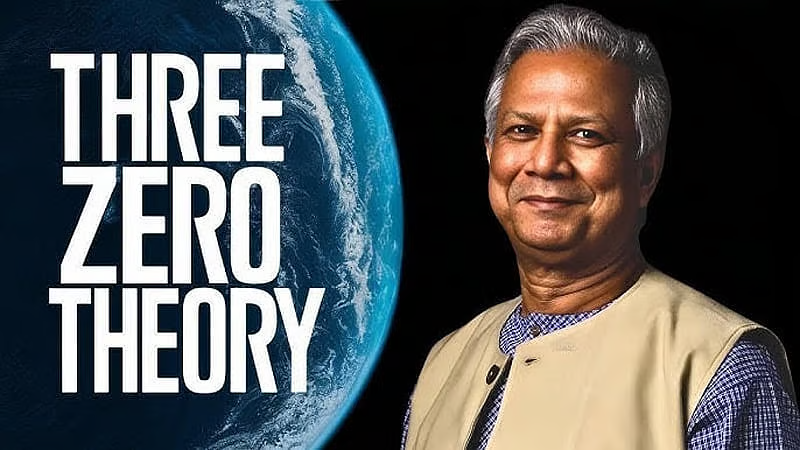Here’s a polished summary of Prof. Muhammad Yunus’s 2017 book, A World of Three Zeros: The New Economics of Zero Poverty, Zero Unemployment, and Zero Net Carbon Emissions:
Core Premise
Yunus argues that the current capitalist system is fundamentally flawed—driving inequality, unemployment, and environmental destruction. He proposes a new economic model that balances self-interest with altruism.
Social Business: The Solution
At the heart of Yunus’s vision is social business—a type of enterprise that is financially self-sustaining but reinvests profits to solve social or environmental problems. These businesses are designed to address human needs rather than maximize shareholder returns.
Examples include:
- A yogurt company that provides affordable nutrition to poor children.
- A solar power enterprise that brings electricity to rural areas.
- Insurance models that protect smallholder farmers in developing regions.
Tackling Poverty and Unemployment
Yunus emphasizes the role of microcredit, which he pioneered through Grameen Bank, as a tool to empower people—especially women—to start small businesses and lift themselves out of poverty.
He also advocates for universal entrepreneurship, encouraging everyone to become job creators rather than job seekers.
Addressing Climate Change
The third “zero” in Yunus’s vision is zero net carbon emissions. He promotes accessible green technologies and sustainable energy, particularly in low-income regions, to combat climate change without sacrificing development.
Systems Change: Policy, Finance & Technology
Yunus calls for systemic changes to support social business:
- New financial tools and investment models tailored for social impact.
- Legal frameworks that recognize and support social enterprises.
- Accessible technology that empowers rather than displaces people.
He urges governments and institutions to create an environment where social businesses can thrive alongside traditional profit-driven companies.
A New Kind of Capitalism
Yunus envisions a world where economic success is redefined—not just in terms of profit, but in terms of human well-being and environmental sustainability. He sees social business as a core component of this more inclusive and humane capitalism.
Key Takeaways
| Focus Area | Yunus’s Vision |
|---|---|
| Economic Reform | Capitalism must evolve to serve human needs. |
| Social Business | Combines market discipline with social purpose. |
| Microcredit | Empowers the poor, especially women. |
| Entrepreneurship | Everyone can be a job creator. |
| Climate Action | Green tech must be inclusive and scalable. |
| Policy & Finance | Systems must support mission-driven ventures. |
A World of Three Zeros is both a critique of the current economic model and a hopeful roadmap toward a future defined by zero poverty, zero unemployment, and zero net carbon emissions. It is a call to action for individuals, governments, and businesses to reshape the world through innovation, empathy, and purpose-driven enterprise.
